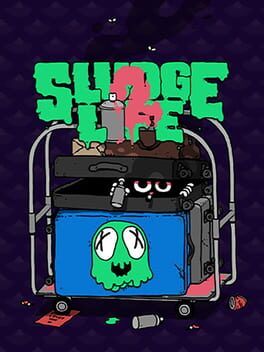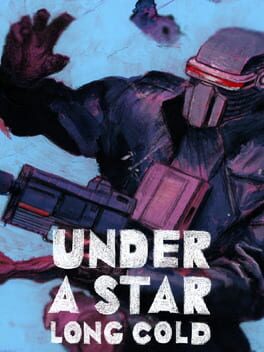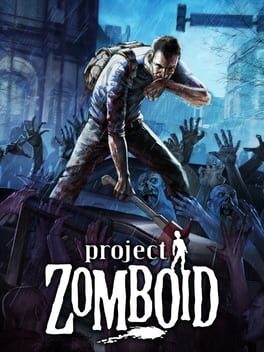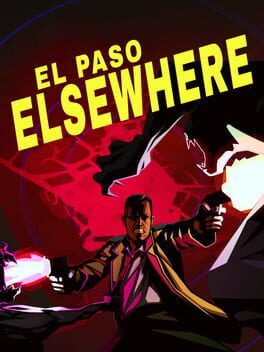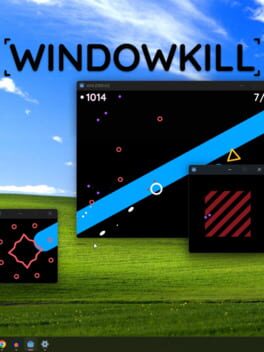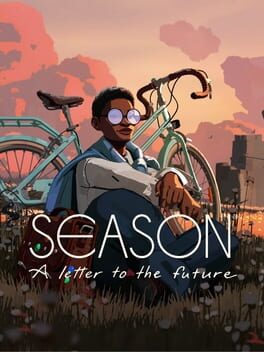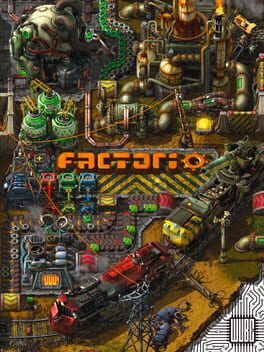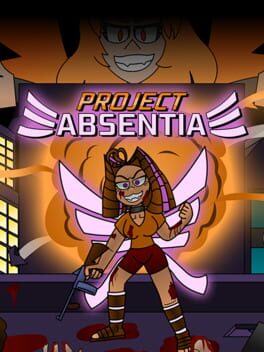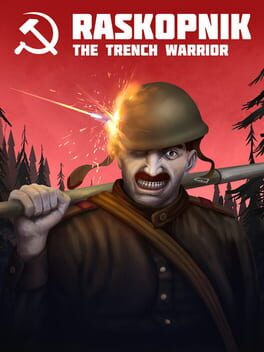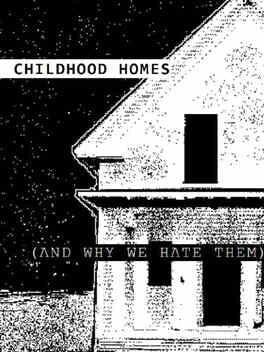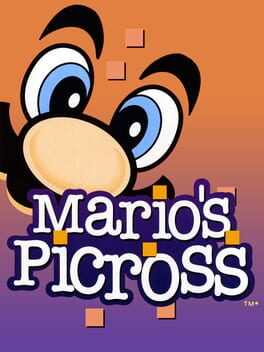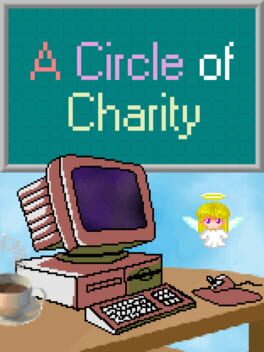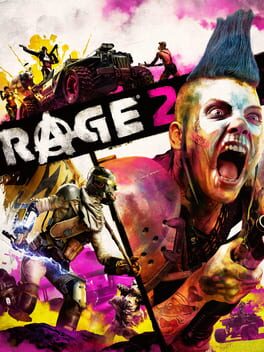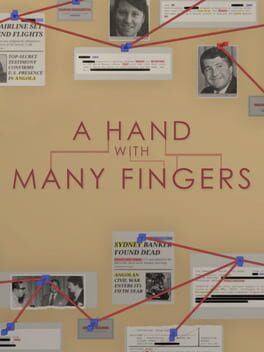JoeSchmoe
BACKER
2023
Just Wrapped on Sludge Life 2, 100%ing it along the way. Another top-tier release from Terri Vellman and Doseone which carries the terminally online streetpunk aesthetic forward from the original. It's one of the few games that peddles in that "online" discourse that I don't find repellant, I think because of how authentic and earnest it feels. The writing here is consistently standout, with the world full of bite-sized morsels of interesting or funny dialog, and room-after room of sight-gag or just-cool-art (TM).
One of my favorite user reviews for the first game reads: "It's so relaxing, not just in a gameplay way, but in a weird cultural way. This is utopia, not the clean 1950s space program utopia, but it's a DIY slacker utopia where everyone just hangs out, ignores their job responsibilities, and listens to beats." It's the sort of atmosphere that you wish your adolescence took place in, while still being way-too-cool for that. Highly highly recommend scooping it up, especially if you're a fan of the original.
Sludge Life 2 is absolutely a more-of-the-same sequel but I just love what they're doing with these games and I can't wait to see what's next for that duo.
One of my favorite user reviews for the first game reads: "It's so relaxing, not just in a gameplay way, but in a weird cultural way. This is utopia, not the clean 1950s space program utopia, but it's a DIY slacker utopia where everyone just hangs out, ignores their job responsibilities, and listens to beats." It's the sort of atmosphere that you wish your adolescence took place in, while still being way-too-cool for that. Highly highly recommend scooping it up, especially if you're a fan of the original.
Sludge Life 2 is absolutely a more-of-the-same sequel but I just love what they're doing with these games and I can't wait to see what's next for that duo.
A Star Long Cold aims to blend Antonio Freyre's previous No Sun to Worship and It Comes In Waves – unfortunately, it lacks the concise brevity of the former and the meditative emptiness of the latter. I don't think it's a bad game – I love the atmosphere and the visual style, I just don't think the core gameplay loop coalesces into something that I feel compelled to return to after a few runs.
I've seen folks talk of this game as superior to It Comes In Waves by virtue of sidestepping its extended periods of nothingness, but the action of Under A Star Long Cold often feels more vacuous than the literal emptiness of It Comes In Waves's desert.
It's worth checking out as a fan of Freyre's work, and as mentioned – it's extremely successful stylistically. I just wish I liked pretty much anything else about it.
High Score of $26,580/$50,000
I've seen folks talk of this game as superior to It Comes In Waves by virtue of sidestepping its extended periods of nothingness, but the action of Under A Star Long Cold often feels more vacuous than the literal emptiness of It Comes In Waves's desert.
It's worth checking out as a fan of Freyre's work, and as mentioned – it's extremely successful stylistically. I just wish I liked pretty much anything else about it.
High Score of $26,580/$50,000
2013
Cataclysm: Dark Days Ahead (CDDA) is an open-source community-driven and developed post-apocalyptic roguelike. It's also my favorite game. However, every time I show someone CDDA, I can feel them recoil. It's a game with a harsh barrier to entry. It's extremely systems-heavy, and does basically NOTHING (outside of a selection of graphical tilesets) to onboard the player. If I hadn't gotten into CDDA in high-school, where I had more time and patience for obtuse games, I doubt I would've ever fallen head over heels.
Project Zomboid, on the other hand, feels almost-intuitive, by comparison. It's a post-apocalyptic survival game with actual graphics. It borrows from CDDA in several ways, but rather than relying on the player to remember a keyboard's worth of shortcuts, you've got radial menus and mouse support – what a concept!
While Zomboid doesn't have the same world (and run) ending special monsters and cosmic horrors as CDDA, it still maintains a similar level of lethality and difficulty, especially when played on 'Apocalypse' - the difficulty mode which really gives the game its legs, imo.
Zomboid never strays into power fantasy territory - even when you're at your strongest, several months in with hoards of stockpiled ammunition and military equipment, your run can be over in an instant if you get sloppy. Forgetting to check corners or charging through unexplored doorways is an easy way to become a zed's dinner, and an easy way for you to lose hours of progress.
I typically don't like this approach to knife's edge difficulty, with every action feeling like you're risking it all. But I think Zomboid gets away with it because the early game, where you're struggling for EVERYTHING – is the best part. I don't mind when I lose a super-successful run, because that means I get to go back to the gameloop where I'm excited to find a duffel bag or a crowbar, and not yet-another automatic rifle.
I am SO excited for the future of Zomboid's development, with future updates promising to bring more features over from CDDA
Project Zomboid, on the other hand, feels almost-intuitive, by comparison. It's a post-apocalyptic survival game with actual graphics. It borrows from CDDA in several ways, but rather than relying on the player to remember a keyboard's worth of shortcuts, you've got radial menus and mouse support – what a concept!
While Zomboid doesn't have the same world (and run) ending special monsters and cosmic horrors as CDDA, it still maintains a similar level of lethality and difficulty, especially when played on 'Apocalypse' - the difficulty mode which really gives the game its legs, imo.
Zomboid never strays into power fantasy territory - even when you're at your strongest, several months in with hoards of stockpiled ammunition and military equipment, your run can be over in an instant if you get sloppy. Forgetting to check corners or charging through unexplored doorways is an easy way to become a zed's dinner, and an easy way for you to lose hours of progress.
I typically don't like this approach to knife's edge difficulty, with every action feeling like you're risking it all. But I think Zomboid gets away with it because the early game, where you're struggling for EVERYTHING – is the best part. I don't mind when I lose a super-successful run, because that means I get to go back to the gameloop where I'm excited to find a duffel bag or a crowbar, and not yet-another automatic rifle.
I am SO excited for the future of Zomboid's development, with future updates promising to bring more features over from CDDA
2023
The gameplay is clearly doing its best Max Payne impression, with the problem that all of the enemies in the first hour are melee enemies. So in each fight, in each arena, in each level, you're backpedaling as the throngs of undead accumulate into single-file globs that open themselves up to pop-pop-pops, rinse and repeat.
The slow-mo feels superfluous - it was WAY more impactful in Max Payne because the speed of the action was way higher. You really needed to utilize the slow-mo there, because a room with 5 dudes in it was a problem. A room with 5 gun-toting thugs is a room with 5 immediate threats, as soon as you enter the room. Having all of the enemies be melee means that they're not threats as much as they are moving targets, eagerly lining up to be plinked off. I've scanned ahead in some YouTube playthroughs and see that they do introduce a ranged enemy later on, but it doesn't look like it's going to fix my issue.
The music is kind of a bummer to me, because I really like all of the instrumental stuff, but as soon as one of the lyrics-laden tracks spins up, I kina physically recoil. I'm glad that the dev is having fun and putting their music out there. I just really don't think it's good, earnestly or ironically.
Scrubbing through the full-game playthrough on YouTube, I think it's EXTREMELY unlikely that I'm going to give this game 7 hours to playthrough. That is a genuinely staggering runtime to me, and it seems like it'd be such a better game if it was half that length and foregrounded the story first and foremost
The slow-mo feels superfluous - it was WAY more impactful in Max Payne because the speed of the action was way higher. You really needed to utilize the slow-mo there, because a room with 5 dudes in it was a problem. A room with 5 gun-toting thugs is a room with 5 immediate threats, as soon as you enter the room. Having all of the enemies be melee means that they're not threats as much as they are moving targets, eagerly lining up to be plinked off. I've scanned ahead in some YouTube playthroughs and see that they do introduce a ranged enemy later on, but it doesn't look like it's going to fix my issue.
The music is kind of a bummer to me, because I really like all of the instrumental stuff, but as soon as one of the lyrics-laden tracks spins up, I kina physically recoil. I'm glad that the dev is having fun and putting their music out there. I just really don't think it's good, earnestly or ironically.
Scrubbing through the full-game playthrough on YouTube, I think it's EXTREMELY unlikely that I'm going to give this game 7 hours to playthrough. That is a genuinely staggering runtime to me, and it seems like it'd be such a better game if it was half that length and foregrounded the story first and foremost
2023
Holy shit, easily one of the most technically impressive games I've played in months. The first game to make me audibly "What?!" "That's insane!" since Viewfinder, and honestly I think I was more gutturally impressed by this. It's quite difficult for my ape brain to manage, with multi-tasking being the name of the game, but it's such an exciting premise I cannot wait to see what else is done with it.
SEASON: A letter to future is a game about loss. About change. About the preservation of memories with those that you love and the inevitability of losing those memories, and sometimes, those people that you love.
SEASON immediately piqued my interest with just how beautiful the game is, a quality that holds just as true in hour 5 as it does in the opening 15 minutes. You play as a young woman, sent from her village to document the world as she chooses to see it - capturing the sights, sounds, and people that you feel are worth remembering.
You’re equipped with a polaroid camera, a field audio recorder, and a journal, whose pages you fill with sketches, ruminations, and your scrapbooking. I had never considered that I might enjoy scrapbooking, but having the opportunity here to collage my collections of photos, sketches and stamps was positively delightful. I meticulously screenshot each page of my journal upon completion because I was proud of what I had made. It felt like an experience and expression that I chose - not one that the game directed me to.
More than anything, the game is just evocative. You run the gamut from tender tears as you say goodbye to your mother, or help a grieving widow; gleeful excitement as you crest a hill, revealing a dazzlingly beautiful vista kissed with golden sunlight; and somber quiet stillness, as you walk through a war memorial, or a village that simply no longer is.
I’ve played photography games. I’ve played exploration games. I’ve played emotional games. I’m not sure I’ve played a bicycle game, but that’s besides the point I’m trying to make – I don’t think I’ve played a game like SEASON, that so directly and explicitly directs the player to contend and grapple with the prospect of fleeting memories and cherished moments.
This game had me crying more than any other piece of media this year. Happy tears, sad tears, bittersweet tears. When it comes to games, or any other piece of media, really, I’ve always treasured those titles that are capable of truly evoking real, meaningful feelings.
So in a year with the epic scope of Baldur’s Gate, the bombastic action horror of Resident Evil 4 and Dead Space - SEASON is one of my favorites. A quiet contender for Game of the Year, one that I wholeheartedly recommend you check out.
SEASON immediately piqued my interest with just how beautiful the game is, a quality that holds just as true in hour 5 as it does in the opening 15 minutes. You play as a young woman, sent from her village to document the world as she chooses to see it - capturing the sights, sounds, and people that you feel are worth remembering.
You’re equipped with a polaroid camera, a field audio recorder, and a journal, whose pages you fill with sketches, ruminations, and your scrapbooking. I had never considered that I might enjoy scrapbooking, but having the opportunity here to collage my collections of photos, sketches and stamps was positively delightful. I meticulously screenshot each page of my journal upon completion because I was proud of what I had made. It felt like an experience and expression that I chose - not one that the game directed me to.
More than anything, the game is just evocative. You run the gamut from tender tears as you say goodbye to your mother, or help a grieving widow; gleeful excitement as you crest a hill, revealing a dazzlingly beautiful vista kissed with golden sunlight; and somber quiet stillness, as you walk through a war memorial, or a village that simply no longer is.
I’ve played photography games. I’ve played exploration games. I’ve played emotional games. I’m not sure I’ve played a bicycle game, but that’s besides the point I’m trying to make – I don’t think I’ve played a game like SEASON, that so directly and explicitly directs the player to contend and grapple with the prospect of fleeting memories and cherished moments.
This game had me crying more than any other piece of media this year. Happy tears, sad tears, bittersweet tears. When it comes to games, or any other piece of media, really, I’ve always treasured those titles that are capable of truly evoking real, meaningful feelings.
So in a year with the epic scope of Baldur’s Gate, the bombastic action horror of Resident Evil 4 and Dead Space - SEASON is one of my favorites. A quiet contender for Game of the Year, one that I wholeheartedly recommend you check out.
2016
2022
Another solid entry into the standalone GZDoom canon – sporting a flash-core Newgrounds aesthetic and some Build Engine sensibilities. Movement feels really good and pronounced, with the game immediately showing its hand of a MASSIVE jump and glide paired with an under-utilized airdash.
This jump and glide get a lot of mileage out of the combat design and arenas though, with large open areas filled to the brim with projectile-spewing enemies. The best choice of avoiding their attacks being bunnyhopping and gliding around.
Some of the specifics of the level-design feel a little unsophisticated in sections, especially when contrasted with the EXCELLENT work being done in the DOOM mapping community, but the team is bringing on community mappers and I'm extremely excited to see what unfolds in Episode 2.
This jump and glide get a lot of mileage out of the combat design and arenas though, with large open areas filled to the brim with projectile-spewing enemies. The best choice of avoiding their attacks being bunnyhopping and gliding around.
Some of the specifics of the level-design feel a little unsophisticated in sections, especially when contrasted with the EXCELLENT work being done in the DOOM mapping community, but the team is bringing on community mappers and I'm extremely excited to see what unfolds in Episode 2.
1995
It's lacking a lot of the convenient quality of life flourishes in most modern Picross games, and it's never particularly difficult, but there's something extremely charming about its breezy gameplay fitting perfectly in a handheld format. I played through this over the course of a month on an emulation handheld, and booting up to an autosave and doing a puzzle or two each night before bed was a perfect way to unwind.
It's doing absolutely nothing new with the formula, but if you like Picross, you'll like this.
It's doing absolutely nothing new with the formula, but if you like Picross, you'll like this.
2023
A deeply beautiful and painful rumination on queer trauma and stewardship. A 20-minute sob-fest accompanied by some perfectly-fitting music and visuals. I'm not trans but it feels deeply relatable across the queer spectrum, and I cannot recommend it highly enough if you're in a space that can stomach some of the pain of its writing.
Magnificent.
Magnificent.
2019
A genuinely sublime way to spend an evening. Colestia concentrates the tone of New American investigative thrillers into a tight two hour traipse through annexes of archives, and man, I really loved it. A Hand With Many Fingers was one of my favorite experiences of 2020, and I'm excited to explore the rest of Colestia's past works and am looking forward to future releases!
